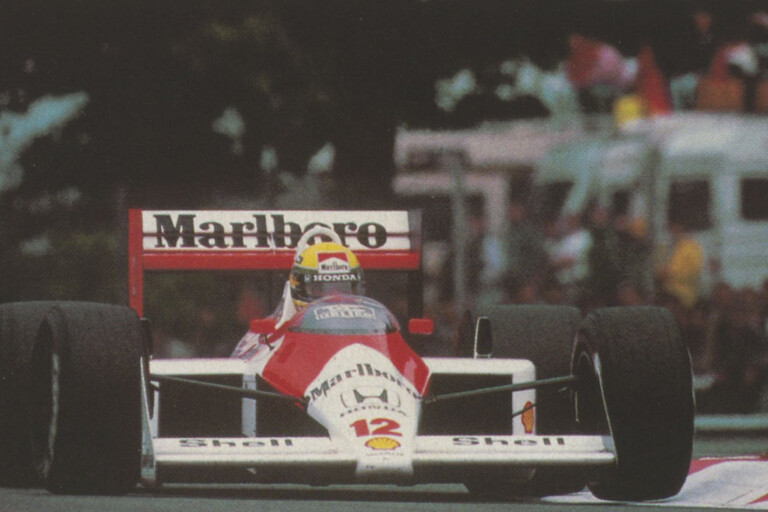
THE HOUSTON Palace is a brand new apartment building on the smart eastern side of Monaco. It's just one of the many concrete boxes which have sprung up in the Principality over the past 20 years to accommodate the wealthy new European classes - sportsmen, entertainers, arms dealers and such-like - who are willing to forget about flashy homes in their own countries in exchange for the virtual immunity from taxation which Prince Rainier can offer in his pocket handkerchief fiefdom.
Magnificent obsession first appeared in the November 1988 edition of Wheels magazine.
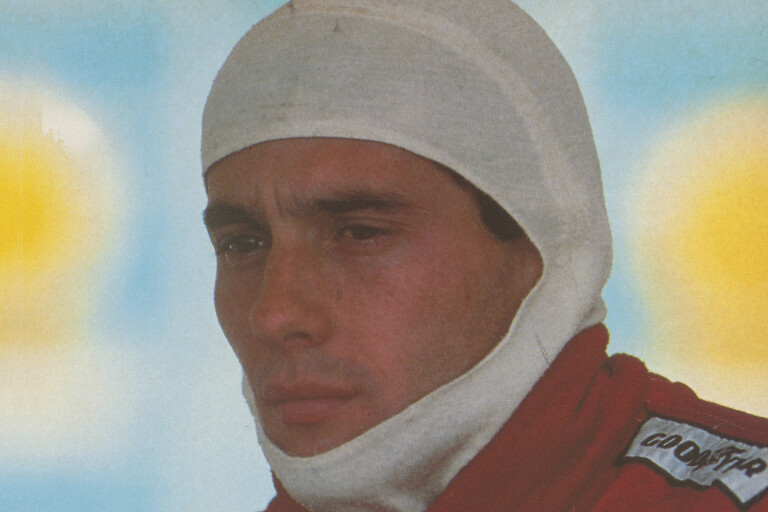
On a Sunday afternoon early in May this year, a 29-year-old Brazilian dressed in red fireproof coveralls strolled into the lobby of the Houston Palace, acknowledged the look of surprised recognition on the hall porter's face, and stepped briskly into the lift. He pressed the button for the ninth floor and allowed himself a quiet curse. Moments earlier he had crashed out of the Monaco Grand Prix while leading by half a minute.
Ayrton Senna was home from work early. Only a few hundred yards away, Senna's Mclaren-Honda was being dragged away from the steel barrier on the outside of Portier corner, just before the tunnel under Loew's Hotel. Its left side suspension was broken and the carbonfibre of its monocoque shredded. Although the incident which caused the damage had occurred right under the lens of a TV camera, the impact had been missed by the operator. And now the crowd was cheering Alain Prost, en route to his fourth Monaco win in five years after it seemed that he was about to be beaten.
Two months later, in the Houston Palace, Senna leaned back on a sofa with a tape recorder held under his nose. It was the day after the French GP, in which he had been beaten by Prost (and a recalcitrant gearbox). Your correspondent, perched nervously on the same sofa, had the strong impression that his host would be much happier concentrating on the men's final at Wimbledon, which an Italian station was showing live on the big TV in front of us.
The apartment is cool and spacious, with white marble floors and a splendid view across the harbour entrance. Like the family home in Sao Paulo, Brazil, Senna's Monaco residence is immaculately tidy. So, too, is Senna's English. Clipped and accurate, with long pauses for thought and an unerring vocabulary.
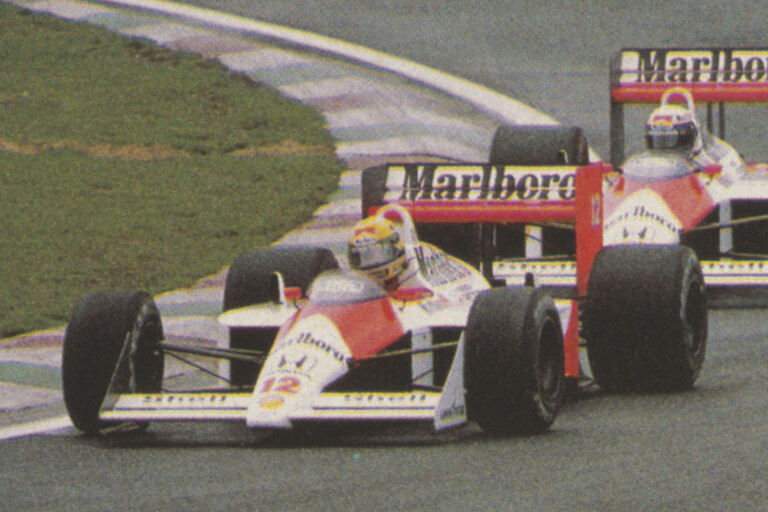
The Brazilian maid, crisply turned out in black and white uniform, brought us biscuits and cans of guarana, a Brazilian soft drink. Within a few minutes, thank goodness, Edberg had beaten Becker. We could now concentrate on the interview, and more specifically that controversial Monaco incident.
"I had slowed down because the pit had told me Alain was not going to push," Senna recalled. "I was not concentrating and I just shaved the inside wall of that corner. As a consequence I lost the steering wheel from my hands, which then let the car go completely to the other side. The car had no damage on the right side, but I was too relaxed. And before I could catch the wheel I was maybe one metre from the barrier. It was gone."
Television caught the moment when he got out and removed his balaclava. No emotion at all on that impassive, finely chiselled face. "There was nothing to gain and nothing to lose from going ape-shit," he explained.
Senna didn't even call up his pit crew on the radio. Just turned on his heel and headed for the Houston.
The atmosphere in the Mclaren pit was tense. What exactly had happened? It wasn't just the press that wanted information. Mclaren boss Ron Dennis was anxious – parked in the harbour was the ocean-going liner he'd hired, with approximately $50 million worth of sponsors on board, all agog to know the fate of "their" car. Just how badly damaged was the MP4/4? At London airport, half a dozen mechanics were waiting to fly to Nice for a test planned at nearby Ricard next day. If the car was a write-off, their journey would be in vain.
It would be more than two hours before anyone could even raise the young master on the phone. There were rumours he had climbed into bed and gone to sleep. Were the stories true? "No," he replies with genuine annoyance. "I finished watching the race on TV, of course! I had a shower. And then I went to sleep, 'cos it was a tiring race, and I had done almost the whole of it." Then, after a pregnant pause, he let go: "I don't really see the point of the whole effing thing…"
Aryton Senna da Silva had closed the subject. According to Senna, the most exalted moment of his life, so far, was the soaking wet afternoon in April 1985 when he won his first grand prix, in Portugal, for Lotus.
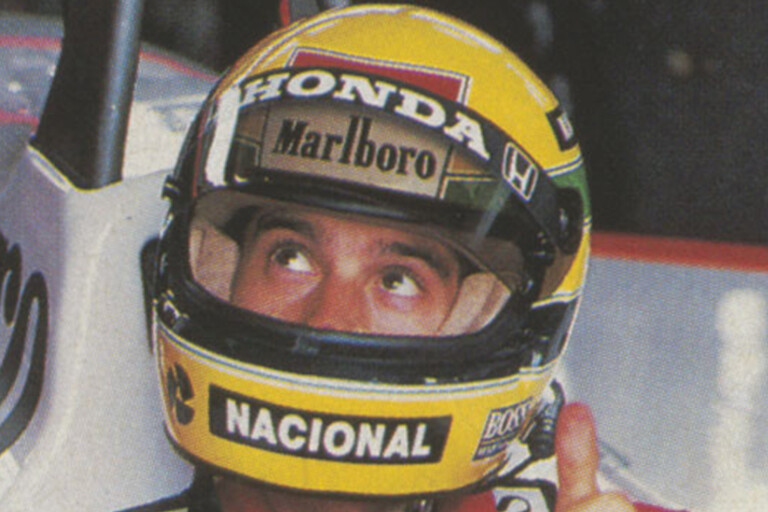
There have been some sublime moments since then, not least the string of victories with Mclaren this year which catapulted him into the lead of 1988 world championship. But nothing, so far, has come close to the thrill of that flag-to-flag victory in the rain at Estoril.
"I know now that I will never be as happy as I was then," he said later, "it is my life-time dream. Ever since I was five years old I had thought about nothing else."
He must have been an insufferable kid. Rich family. Nice house. Daddy made him a kart when he was four years old. Trips to the kart track every Sunday. No worries.
Daddy imposed a strict rule. If the monthly school report was no good, it meant no karting. For a month. "It was unbearable," he says. Nowadays, it's Senna who's getting unbearable. Never in the history of the world championship has there been a driver who was less approachable. Prost was bad enough in the days when he was driving for Renault, but that was his team's fault.
This coolness, this indifference to what people think about him, is the side of Senna which has been prominent since he won that first grand prix with Lotus. This year he boycotted some of the post-qualifying press conferences, to such an extent that in mid-summer FISA had to introduce a rule making drivers' attendance compulsory.
In any other sport, such inaccessibility would not be tolerated. There have been complaints from journalists to sponsors, and one incident when Senna walked out of the post-race press conference while he was being introduced. Although single-mindedly dedicated to his mission of winning the world championship and piling up his tally of pole positions and race victories, there are signs that Senna craves publicity.
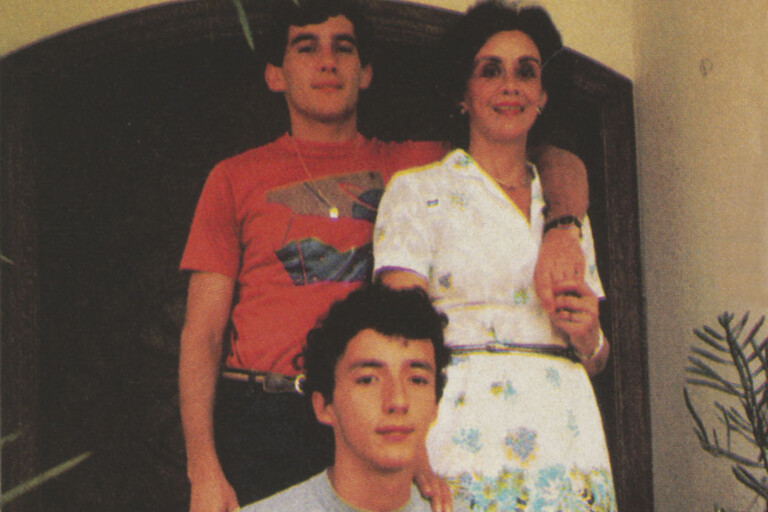
Provided, of course, it's sympathetic. When he was racing in British Formula Ford events, for example, he arranged to have regular press releases mailed out about himself. And when a casual off-the-cuff remark by Nelson Piquet was published in Brazil earlier this year, Senna took offence, hired a heavyweight lawyer and started a legal fight which only ended when Dennis told him to cut it out.
In spite of what was headlined by the sleazy British and Australian papers, incidentally, Piquet said no more than that "Senna doesn't like women". That is manifestly untrue: He does like women's company. Though he was divorced in 1981 after an unusually brief marriage, some very desirable women have been seen with him. His friends point out that he comes from a strict family.
Divorced or not, he professes the Roman Catholic faith and tends to be a bit old-fashioned. If one of the girls he turned down subsequently cosied-up to Piquet and told him a few stories about what Senna had (or hadn't) done, you're welcome to draw your own conclusions. Probably Senna happens to like rather fewer women than his countryman.
Senna's best friend outside his family is Mauricio Gugelmin. They met when they were both racing karts in Brazil. Gugelmin had a truck with enough room to carry Senna's karts, too. They buddied up and have never had a hard word. Needless to say they were racing in different categories.
Gugelmin, four years younger than Senna, followed his friend to England and had almost as much success. With Gugelmin's pretty wife Stella they shared homes in Norfolk and Reading. Now they all live in the £600,000 house on an exclusive estate just around the corner which Senna's first year at Lotus helped to buy. It's a perfect arrangement, allowing a homey Brazilian atmosphere and the opportunity for each to bounce ideas and projects off the other.
Gugelmin holds Senna's driving ability in an awe which is unknown between people who have to consider themselves the best. He tells of a Formula Ford 2000 race at Snetterton in 1982 when someone spun in front of his friend on the first lap. Senna was forced to drive over a kerb, which flattened a brake pipe. In spite of the total lack of brakes, he won the race, overtaking several good men on the way.
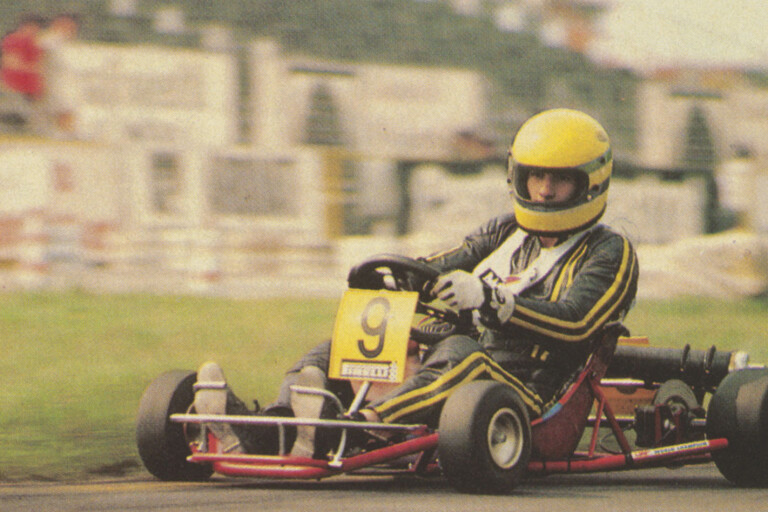
"When Ayrton came into the pits he was waving at me frantically to get out of the way because he couldn't stop," remembered Gugelmin. "I checked the front brake discs and they were completely cold. He really had no brakes…" Later, when Senna took up residence in Monaco, the friendship endured, although even Gugelmin finds it increasingly difficult to get close to him.
“Ayrton certainly is a difficult person," he says, "but most of the people who don't like him are involved in racing and have some reason not to like him. Seventy percent of them are jealous and half of them really admire him anyway."
But why should he be so distant, so aloof? "It is because he is so determined about what he is going to do," says Gugelmin. "Whatever it takes, he will do it. He's got it all worked out in his head. Everything that he does will do him good in motor racing. He is working behind himself 24 hours a day…"
In contrast with an increasing distaste for the press is Senna's obsession with being on the right side of the engineers and mechanics of his team. It started with Toleman in 1984, continued with Lotus, and can be seen now at Mclaren. There are the individual handshakes on arrival at the circuit, then again after the race.
He also chats a lot on the car-to-pit radio. Lotus technician Gerard Ducarouge, with whom Senna cultivated a particularly close working relationship, recounts the occasion in qualifying when his driver announced excitedly that he'd just taken pole position. Moments later, the Longines-Oiivetti time proved him right. "Sometimes when we have achieved something good, I try to give the people in the pits some of the feeling I have. After all the tension and seriousness and everything, it's good to share a little bit of happiness and excitement."
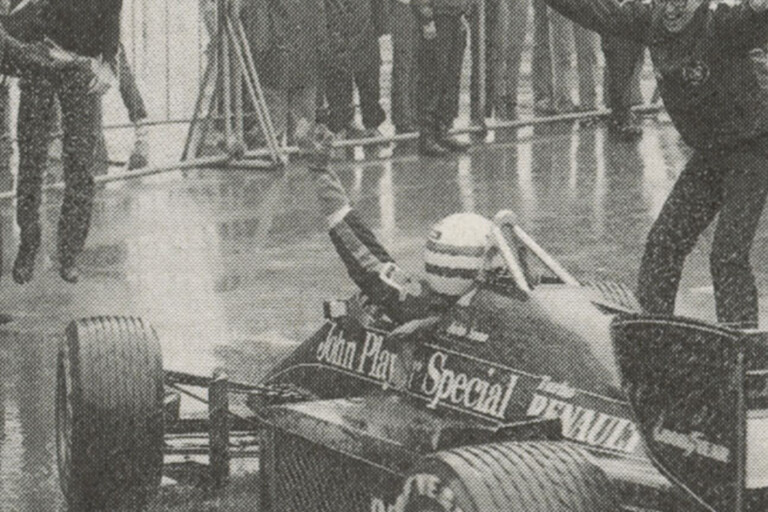
Not everyone at Mclaren feels comfortable with the Senna handshakes and his willingness to stay with the mechanics until dusk every night. Some of the mechanics feel that all the affability is a thinly disguised moral bribe to get better treatment. Perversely, they prefer Prost's laid-back approach. "When Alain starts being friendly, you get the feeling that he's only doing it because Ron told him to," says one.
Steve Nichols, the American designer of the Mclaren MP4/4 chassis, says that Senna was so keenly aware of the affection in which Prost was held after four years with Mclaren that it made him palpably nervous. "It was as though he was looking over his shoulder all the time in case someone wanted to stab him in the back. I had to tell him, 'Hey, we're on your side, you know!' Now he's everything you'd want a driver to be - likable, honest, hardworking, full of fun, not at all like the journalists seem to think."
These days Senna is appreciated by most of the drivers. Gerhard Berger says he is positively helpful, even in the heat of qualifying. "When you're on a quick lap and he isn't, he always sees you. He even manages to place his car to give you a tow."
Yet there remains the lack of affability, the unwillingness to engage in eye contact, which makes one wonder dark thoughts. Does someone as secretive perhaps have something to hide?
Back in Sao Paulo, the Senna da Silva family home is located on a rather dowdy side of this typical South American city. A solidly-built bungalow, with cool gables and polished floors, it has a big garage, a large swimming pool and several servants. A rottweiler named Buck stands guard, ready to tear the legs off anyone stupid enough to come over the wall.
Ayrton is devoted to his family, describing his father, Milton da Silva as "my hero". Senor da Silva, himself the son of a chauffeur, is a self-made businessman who sold his prosperous Sao Paulo engineering company some years ago to buy property. He now has a huge spread in the state of Goiania, deep in the interior, where he raises cattle. He has two light planes to help get around the place.
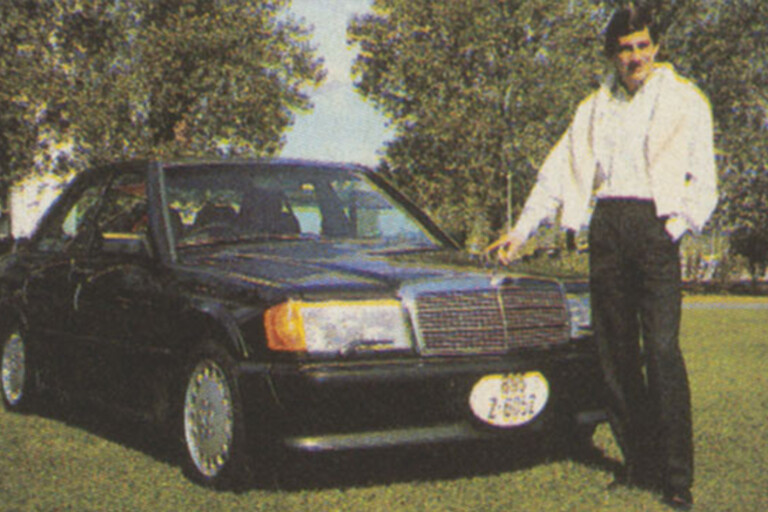
The matriarch is Neide, or "Dona Zaza", a quiet, shy woman with sad eyes who obviously feels out of place when she comes to the races. In the South American style, it was her name that her son chose to use for racing. She recently told a Brazilian women's magazine that her boy had promised to give up racing if he won the world championship. Nobody believed it. Though the family bond is unusually strong, Ayrton's 1989 Mclaren-Honda contract is written in stone.
It is to this refuge that the world's fastest racing driver escapes, even if he's only got a week off – which isn't often. When he invited me to stay with the family there four years ago, I knew immediately that it was a privilege. He had fallen behind with the exercise program set for him by the coach of the Brazilian volleyball team, and he spent a whole morning working out by the pool, not a spare ounce on the wiry, jockey-size body.
Only two years earlier, he had decided to abandon his second season of English Formula Ford racing to come home. If there is anything that Senna wants to hide, it surely relates to that period of his life. His marriage had broken up and he claimed that his father needed his help in the business. What changed his mind about racing then? What brought him back to chilly England?
"It was something stronger than my willingness to give it up. Racing had become something that, in a way, was part of my life, part of me. And I only understood this feeling, and realised what was happening to me, after four or five months of being away from racing cars."
One theory, originating in Brazil, suggests that the secretiveness all dates back to this period, which coincides with the year that Senna had failed, after several very determined attempts, to win the world karting championship. Perhaps the combination of his karting frustration, coupled with the break-up of his marriage, had deeply scarred a man for whom perfection is the goal.
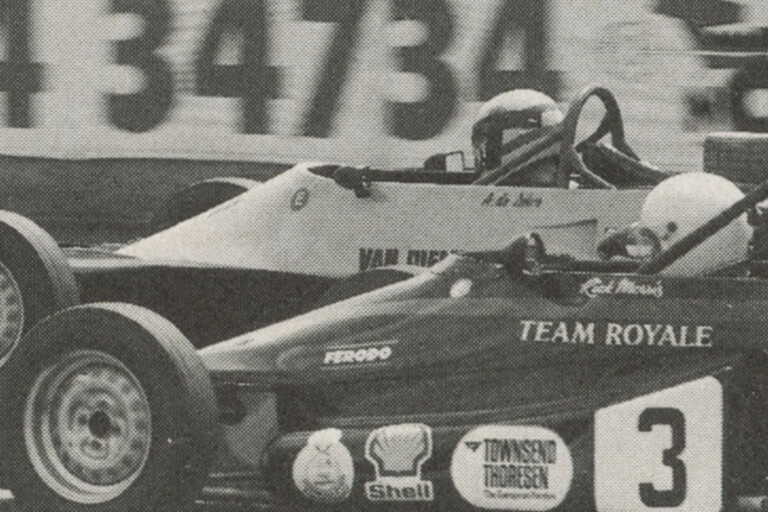
It would also account for the obsessive approach to F1, all the handshaking with the mechanics and the insistence on staying late at the circuit. It might even explain the secretiveness which many pressmen find so intriguing and annoying.
Perhaps the last word on the subject should remain with Ron Dennis, who chooses to hide his great perception under a blanket of weasel words. "It's very important that a driver should have won one world championship," said Dennis last year, in a remark aimed at Nigel Mansell, but equally true of Senna. "Until a driver gets a title into his system there's always an element of frustration and desperation that creeps in at critical moments. When your goal is to win the world championship, then until you've actually achieved that, there's something lacking in your makeup."

COMMENTS